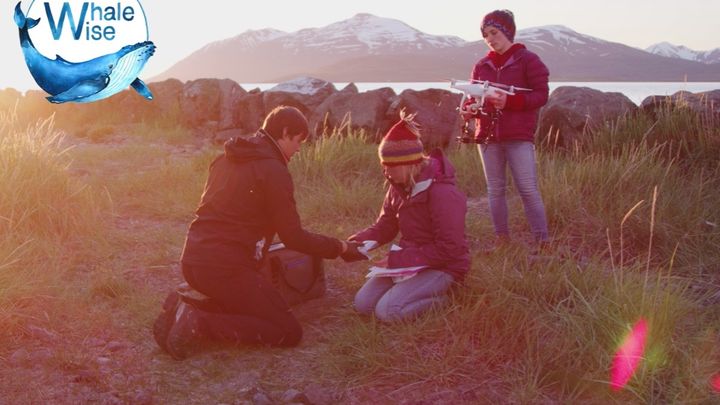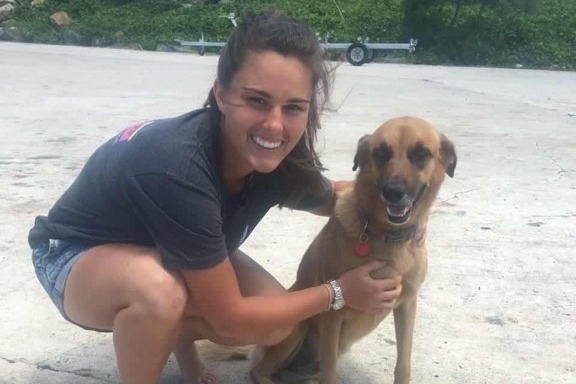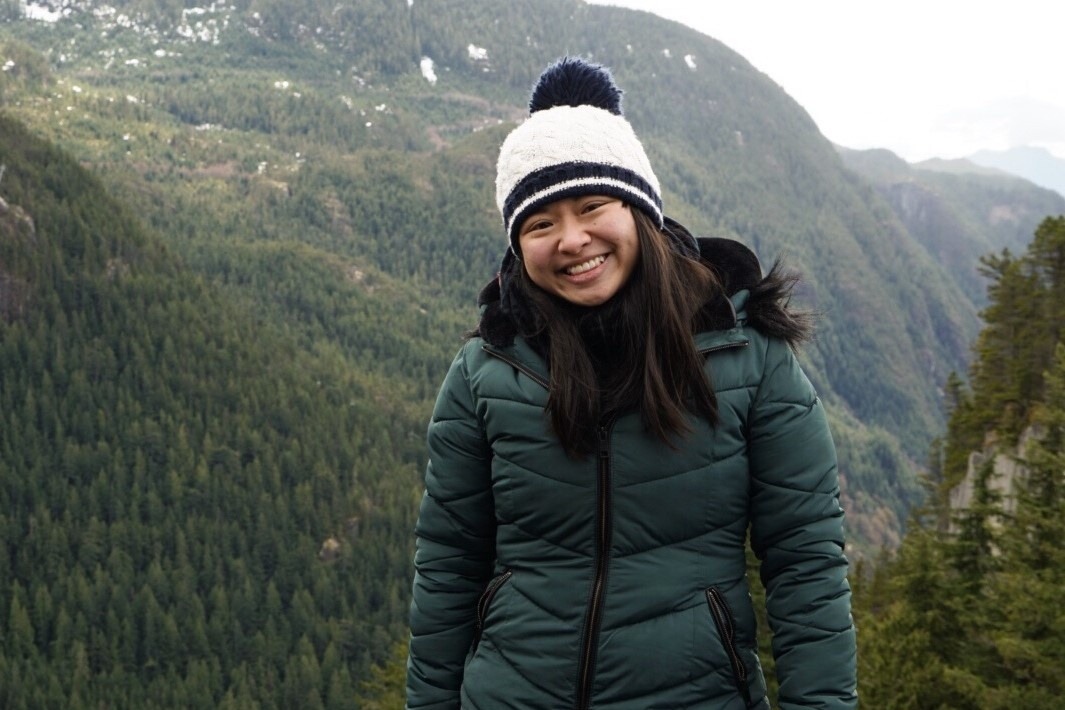
Whale Wise (North America)
Donation protected
OUR MISSION
Whale Wise is a collaborative research group, with the aim of promoting ocean harmony through effective marine conservation.
(WhaleWise.org )
CURRENT RESEARCH
We aim to contribute new research towards best practices within the whale watching industry - with the overarching goal of ensuring the greater protection and welfare of whales, dolphins and all marine mammals.
Using a range of methods and equipment, from drones to hydrophones, we will deduce the behavioural, bio-energetic and physiological response of whales to whale watching vessels. From this, we will construct a conservation plan aimed at minimising these negative impacts. By engaging local tour operators and the general public with our project and its aims, we hope to translate our research into action towards protection of whales and dolphins.
Connecting Humans + Whales – How can we do it better?
Whale watching is a growing industry in seas around the world. Now a widely popular ecotourism activity, it has great potential to promote marine conservation, benefit the economies of coastal communities, educate and encourage the protection of these magnificent animals and all marine life.
We are huge supporters of whale watching - after all, we ourselves love to watch whales!
However, we believe we have a fundamental duty to protect the welfare of the whales we love to watch. As such, our research focuses specifically on the potential impact of whale watching encounters on whale populations, with the end goal of learning how to better protect them.
Our Method
The hub of our research is in Skjálfandi Bay, Iceland. An important feeding ground for many whale species, this area in the North Atlantic has a large whale watching presence, with up to 50 boat trips per day during the peak summer season.
Specifically, we study two species:
1. Humpback whales - Megaptera novaeangliae
These enormous ‘angels of the sea’ are known for their melodic songs and amazing aerobatic abilities.
2. Blue whales - Balaenoptera musculus
The largest animal in the world, majestic blue whales are listed as Endangered by the IUCN (International Union for Conservation of Nature).
In the field, we use three principle methods:
1. Behavioural observation
In both the presence and the absence of whale watching vessels, we observe, photograph and document the animals’ activity- such as feeding, diving, breaching, etc.- in order to assess any alterations in their behaviour when in proximity to, or away from, whale watching boat activity.
2. Aerial imagery - drone photography
Utilising drone technology, we will monitor the body condition of individual whales in order to track their health, which help us to gauge potential vulnerability to human disturbance.
3. Blow sampling via the use of non-invasive drones - first ever in Iceland
Our specially designed drone is used to collect samples of whale exhalations ('blows'). Blow samples contain a vast array of biological data, including DNA, microorganism information, hormone levels and indicators of the whale’s metabolism.
From these samples, we analyse various hormone levels (like cortisol, a ‘stress’ hormone also found in humans) to assess the physiological and possible stress-related responses to whale watching vessels. Sampling occurs at different times of day, before and after whale watching encounters, so that we can compare differences in hormone levels.
An Ambitious 2019 Field Season:
Drone Based Research:
During the 2018 field season, we successfully collected the most northerly blow sample ever recorded. Therefore, we have big plans for the current 2019 season - we aim to collect 100 blow samples from both humpback and blue whales. To achieve this, we have welcomed Abigail Robinson to our team. With experience in capturing drone footage of humpback whales in the Cook Islands, Abigail will bring her expertise to Iceland for nearly two months. This year, unlike last year, we also have access to a small research vessel (a 5-metre RIB). This is crucial in reaching blue whales, which are usually further out to sea.
Documentary:
Our progress so far has taught us to dream big. Therefore, this year we plan to make a documentary about our work and the whales we are privileged to study. We want to give people an insight into our team and our work, convey our passion for the marine environment, our dedication to the cause, and the true story of what goes on behind the scenes while study whales.
Inspiring partners:
We are so lucky to continue working with our partners from last year, the University of Edinburgh, University of Iceland and Húsavík Whale Museum. We also couldn’t wait to announce our 2019 partnership with Arctic Whale by Barba , a collaborative group with the mission of communicating the impact of pollution in the Arctic. Specifically, this year they plan to document plastic pollution in sub-Arctic ecosystems in an expedition from Norway to Iceland.
~~~~~~~~~~~~~~~~~~~~~~~~~~~~~~~~~~~~~~~~~~~
We formed Whale Wise because we are passionate about saving whales and the marine environment. We wanted to form a group that did not ignore or intimidate those who disagree with us. We are all from different cultures and different backgrounds- judging those who think differently is not the way forward. It isn’t fair on them and won’t lead to long-term, sustainable conservation. Rather, we want to work with everyone- share stories, educate, inspire. While we continue to grow in number and reputation, we must remember to stay true to this central principle.
If you have a passion for whales, dolphins and marine life - please consider donating.
As a small organisation, any donation, no matter the amount, will make a massive difference to our work and the positive impact we can have for the welfare of whales. We also invite you to join our journey through our blog at WhaleWise.org .
~~~~~~~~~~~~~~~~~~~~~~~~~~~~~~~~~~~~~~~~~~~
THE TEAM
With a shared passion and commitment to marine conservation, the Whale Wise team is a group of people with solid experience in whale research, conservation action, public engagement and media.
As our consciousness evolves and we become aware of new and better choices we can make for ourselves, our planet and all of its inhabitants, it is our privilege to contribute our research and experience in this field – with the ultimate hope that we can better co-exist in health and harmony with all creatures great (like whales!) and small.
Please meet our team below, and thank you!
Tom Grove

After graduating with a degree in Natural Science (Cambridge University, UK), Tom has spent the last two years working for various marine research and conservation groups, with a focus on whales. As part of this, he spent a summer working for the University of Iceland in Húsavík, contributing to photo-identification and behavioural research. During this time, he formed the idea of promoting a more sustainable whale watching industry in Iceland and beyond. This idea has now transformed into Whale Wise, with the broader aim of reducing human disturbance to whales. Whale Wise will form part of Tom's PhD with the University of Edinburgh.
Alyssa Stoller

Alyssa grew up in California, spending much of her childhood at the beach and on the ocean. Inspired by her family, she knew from a very young age that she wanted to devote her life to whales and the ocean. Alyssa obtained her BS in Marine Environmental Science from Western Washington University, in the hope of better comprehending the issues that are affecting marine wildlife. She then spent four years as a research assistant (2016 and 2017 as head research assistant) for Cook Islands Whale Research based in Rarotonga, Cook Islands, primarily studying humpback whales. In 2018 Alyssa began working with Whale Wise, with the aim of minimising human disturbance to marine life.
Abigail Robinson

Abigail is from New Zealand and has always felt a draw to the ocean. Growing up in a family that spent summers fishing and diving, meant that she encountered cetaceans from a young age, and has always scanned the horizon for them ever since. While studying a BAppSc. in Biodiversity Management (Unitec, Auckland), she spent a season in 2016 in the Cook Islands working along side Alyssa as a research assistant for Cook Islands Whale Research. This was when she learned to fly a drone, and capture humpbacks from an angle that offers many new research opportunities. Currently she works as a Biosecurity Officer in New Zealand.
Flordespina Dodds

Flo graduated from McGill University (Montreal, Canada) with a Bachelors in Biology, with a concentration in marine biology and a minor in natural history. A class on marine mammals in the Bay of Fundy made her the whale enthusiast she is today. She is currently completing a Masters degree in Marine Systems and Policies at the University of Edinburgh. This has led to her dissertation project focusing on using aerial imaging to study humpback and blue whale body conditions. She hopes to go on to a career in whale conservation in eastern Canada. Her favorite whales are humpbacks and right whales because they are krilling it!
Beverly Tan

Beverly is a final year Ecological and Environmental Sciences undergraduate at the University of Edinburgh, and is interested in the use of technology such as unoccupied aerial vehicles in conservation, environmental and ecological sciences. She has dabbled in marine conservation back home in Singapore: from work with Conservation International’s manta tracking program, to research on scleractinian corals, to volunteering with intertidal and seagrass monitoring groups. Combined with her love for the ocean, conservation, the outdoors and the environment, Whale Wise is an exciting next step for her. Her favourite animals are whale sharks (close enough!), and her favourite whales are narwhals – none of which she’ll see in Iceland, but she’s only ever seen one whale in her life, really far in the distance, so she’s extremely excited to embark on this upcoming journey with Whale Wise, and fall in love with these magnificent creatures of the sea.
Amelie Laute

After graduating from high school, Amelie travelled to various countries for three years, gaining an understanding of the world’s beauty, problems and associated solutions little by little. She has learnt from and contributed to different marine research groups along this journey. While working for two seasons with Cook Islands Whale Research, she realised the importance of whale conservation. Getting to know Tom and Alyssa during this project therefore led to collaboration in Iceland with Whale Wise, now and in the future. Amelie is now studying marine biology in Kiel University, Germany, developing theoretical background knowledge to be able to support ocean conservation in a professional way.
Lucie Weber

Being half-way through her Bachelors in Biology at LMU Munich, Lucie is still fascinated by the complexity and beauty of our planet and spent several weeks in the field both in Germany and Saskatchewan (a province in Canada with cool prairie lakes!). She discovered her love for the ocean while living in Halifax, Canada, during her semester abroad. Here, she also got into chemical oceanography, environmental sciences and climate change research, as well as outdoor sports and the cheerful East Coast lifestyle. Understanding and protecting all the invaluable and vulnerable ecosystems and species from further damage through human activity is Lucie’s passion.
Mark Romanov

Mark grew up with a fascination for all things wild. Now a freelance wildlife film-maker, Mark has extensive experience in flying and building drones for filming purposes, including whales and other marine life. He has produced and contributed to various films and documentaries (www.markromanov.com ). He also seeks to bridge the gap between science and entertainment. Mark thinks that whales are more intelligent than given credit for, and excited for what the coming decades of research can reveal about their lives. In 2018, Mark assisted in the Whale Wise team as drone pilot, and successfully collected the most northerly blow sample ever recorded.
Our Funding Goals
$5,000 - allows us to conduct research for another field season
$10,000 - allows us to conduct research for another field season and purchase custom-built drones
$20,000 - allows us to conduct research for another field season, purchase custom-built drones and have the resources for our own research boat
Contributions of any size play a large role in the improvement of the relationship between whales and humans! Thank you!
If you would like to donate in pounds, please visit our UK page: www.gofundme.com/whalewise

 Organiser
Organiser
Whale Wise North America
Organiser
Bellingham, WA


